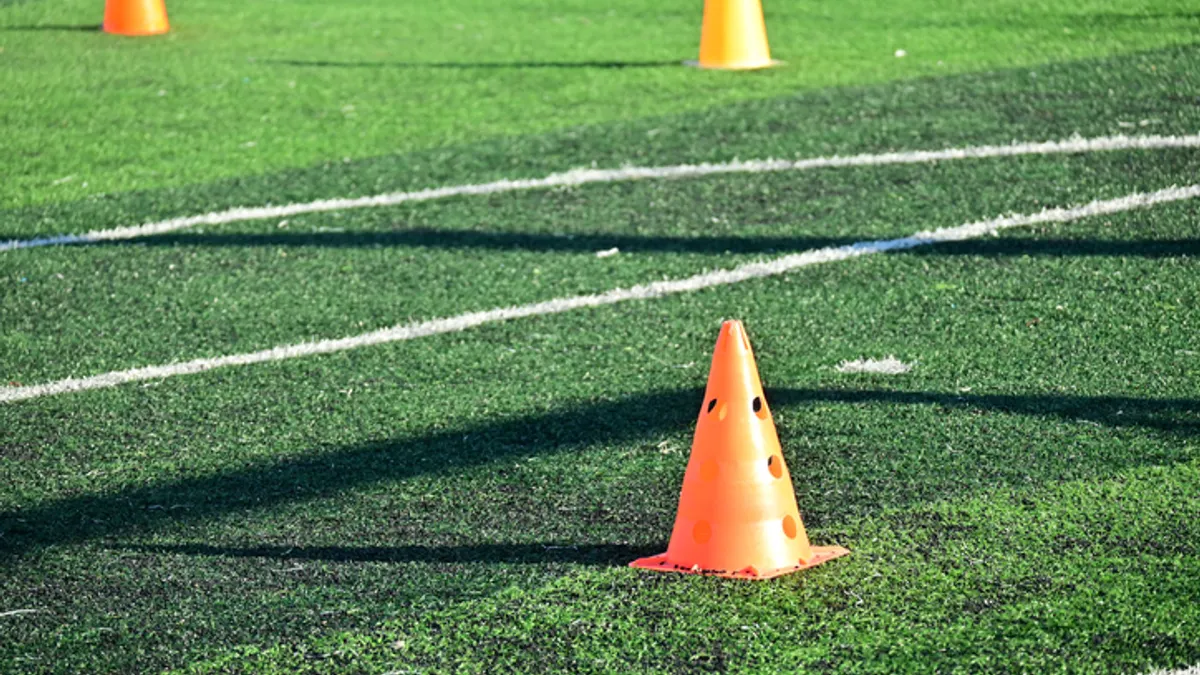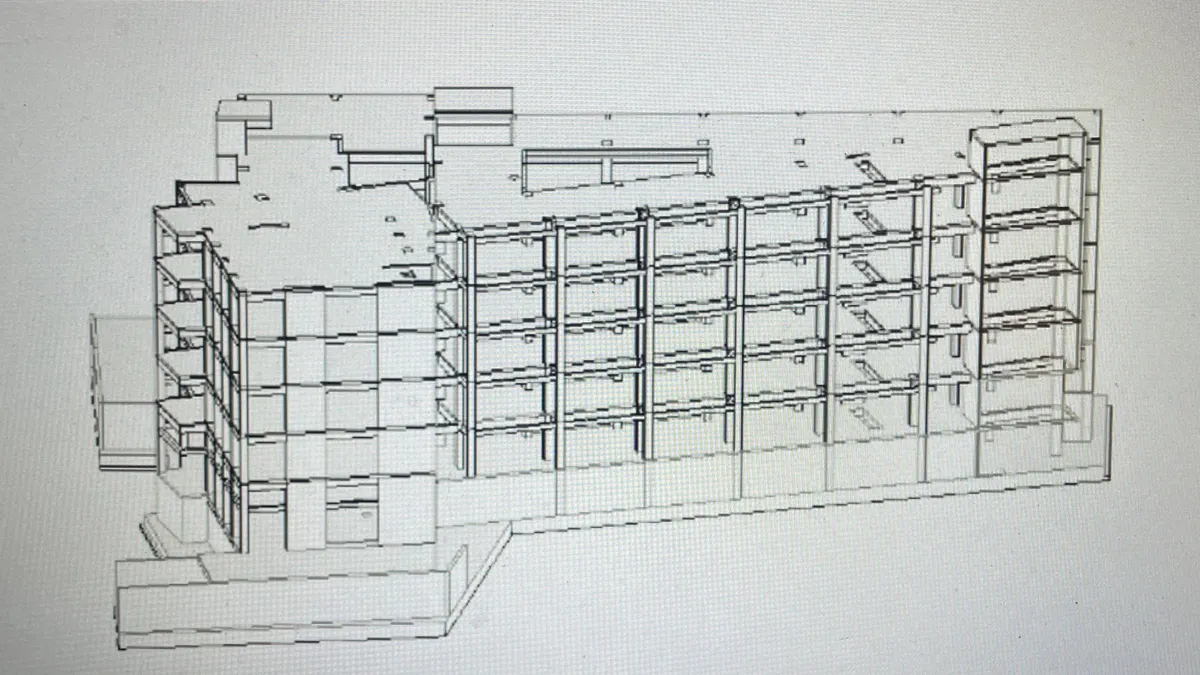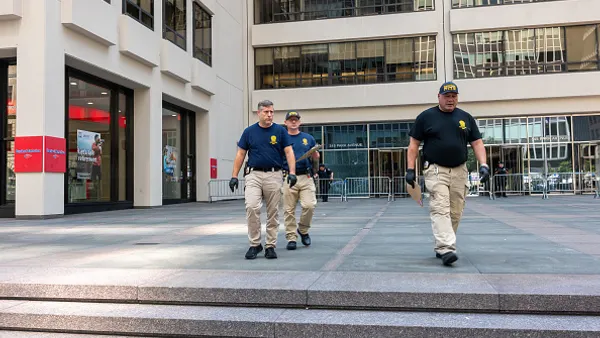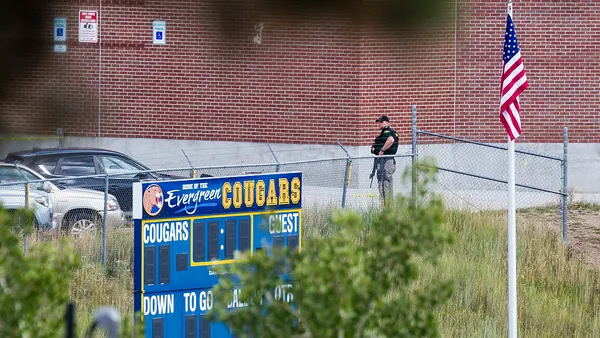Dive Brief:
- An environmental group, its executive director and three scientists are accusing a manufacturer of trying to use intimidation to stop them from talking about possible health risks of artificial turf.
- New York-based Grassroots Environmental Education and four individuals earlier this month filed a lawsuit alleging Polyloom Corporation of America sued them for defamation, and sought a temporary restraining order against them, days before they were to participate in a webinar on the possible health impacts of artificial turf. The plaintiffs accuse Polyloom of violating a New York law called SLAPP – Strategic Lawsuit Against Public Participation – that prohibits the use of lawsuits for the purpose of intimidation.
- “Corporate bullies should not get away with using the legal system to quash the truth,” Kyla Bennett, one of the scientists who was sued for defamation, said in a statement. Polyloom didn’t immediately respond to a request for comment on the lawsuit.
Dive Insight:
The use of artificial turf is accelerating in the United States, driven in part by municipalities and schools, according to AMI Plastics data reported by The New York Times. As many as 19,000 parks, playgrounds and school sports facilities now use some type of artificial turf, the Times says.
Health concerns regarding artificial turf have also grown, the plaintiffs say. Among other things, the manufacturing process tends to use per- and polyfluoroalkyl substances (PFAS), the rubber pellets used as infill material contains contaminants from the recycled tires they use as source material and the chemicals that facilities use to keep the turf sanitized after use create their own health risks.
“The environmental and public health impacts of artificial turf are a matter of strong public interest,” the plaintiffs say. “Communities and school boards across the country are weighing the advantages and drawbacks of using artificial turf.”
Grassroots Environmental Education had invited the scientists to talk about these health risks in a webinar it was hosting in January, but the group cancelled the event days before it was to take place after Polyloom accused it and the scientists of defaming it and sought a cease and desist order against them.
“The [webinar] is specifically advertised to ‘towns, cities and schools across the county,’ all of which are within [Polyloom’s] primary customer base,” the company said in its temporary restraining order request. “In the various promotional materials published in advance of the Event, Defendants continue to spread numerous false and misleading statements regarding artificial turf, all of which can be reasonably construed to be about Plaintiff and its products.”
In the SLAPP lawsuit they filed in response, the environmental group and scientists say the defamation lawsuit is frivolous and its only aim was to stop the webinar. “Grassroots has never identified any company by name in its materials and/or programs,” the complaint says. “Until they received a ‘cease and desist’ letter from Polyloom, wherein Polyloom demanded that they cease and desist from engaging in public discourse about artificial turf, none of the Plaintiffs were aware that Polyloom existed, with the exception of Dr. Kyla Bennett.”
The lawsuit identified one instance in which Bennett, about a year earlier, had mentioned Polyloom parent company TenCate by name in a social media thread that was published in response to the company’s claim that its turf was PFAS-free.
Polyloom and its parent company, Netherlands-based TenCate, have touted the effort they’ve made to offer environmentally friendly turf. Among other things, the company has stopped using recycled tires to make infill material and instead uses organic materials like cork and olive pits, and in some products it doesn’t use infill material at all. The company has also eliminated the use of PFAS, Joe Fields, chief executive of TenCate Americas, told The New York Times.
“The chemical compounds in turf were similar to those in surgical sutures and other commonly used products,” The Times reported Fields saying. “I think it’s a lot of misguided concern,” he said.
Polyloom’s defamation lawsuit was filed in Tennessee federal court. The SLAPP lawsuit was filed in the New York Supreme Court.













